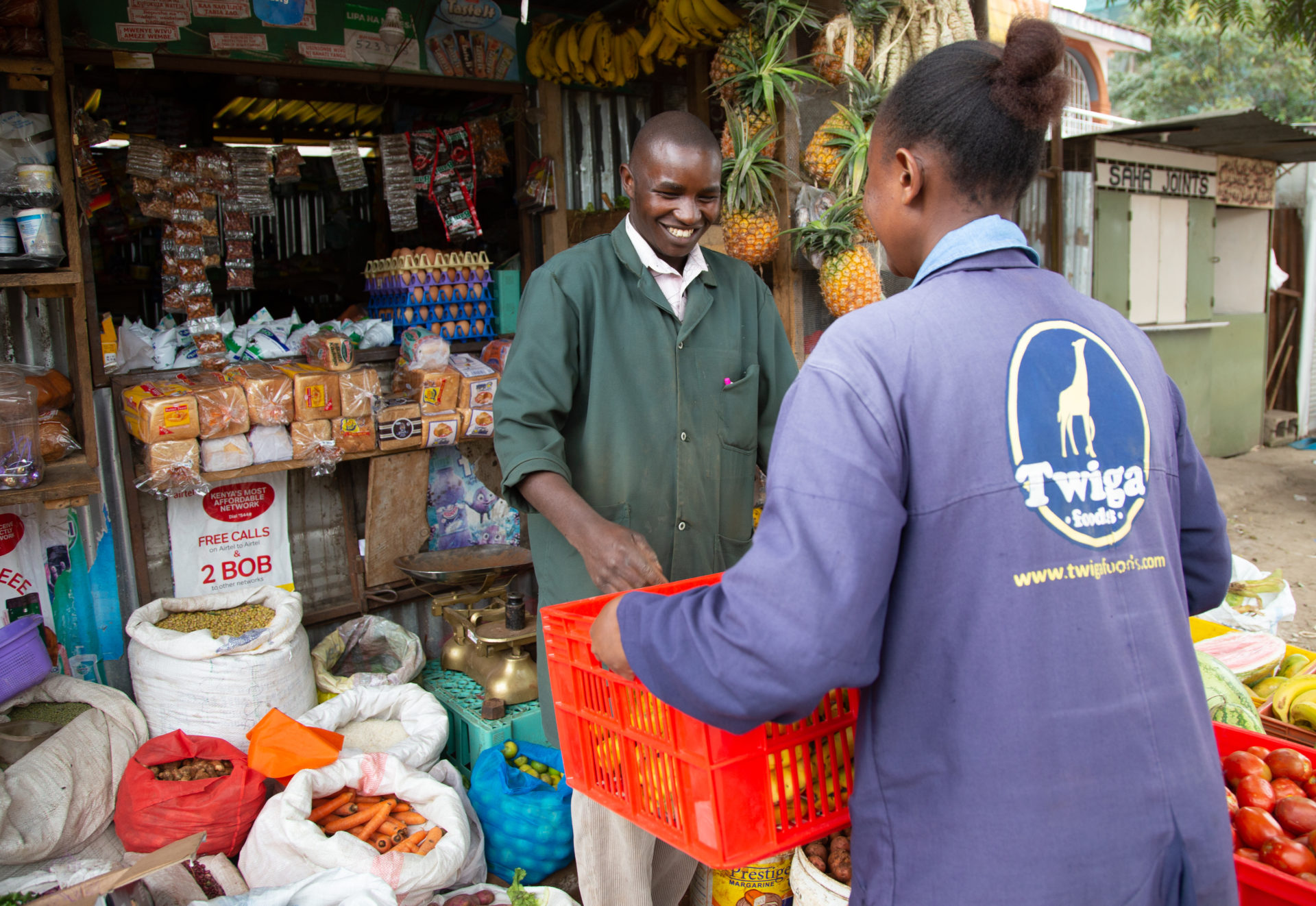Twiga Foods, a Kenyan based B2B supply platform, has announced a successful $30m Series B raise from investors and lenders.
Kenya faces a problem which is common to many African countries: an inefficient agricultural supply chain. This inefficiency is costly and causes up to 40% of farming produce go to waste.
Twiga’s solution is simple. It improves the supply chain by buying from a network of farmers, then transports the produce to vendors who have already placed orders.
In a statement, Twiga said: “the Series B will fund the continued development of Twiga’s proprietary technology and logistics assets to support the roll-out of its distribution system and lay the foundations for expansion into other cities on the continent.”
The company has grown since it launched in 2014. In a mark of the company’s growth, it has now closed a $23.7m Series B funding round led by Goldman Sachs. The World Bank’s International Finance Corporation (IFC), private equity firm TLCom Capital and French investment company Creadev also participated in the round.
Twiga secured an additional $6m in debt from OPIC and Alpha Mundi.
Peter Njonjo, CEO and co-founder of Twiga Foods, said: “This funding enables us to invest in our technology and organization to tackle the inefficiencies in Africa’s domestic food production and distribution ecosystems; a $300bn informal and fragmented market that is estimated to grow to $1trn by 2030.”
Twiga is one of the best-funded startups on the continent. In 2017, it raised $10.3m from investors.
Twiga raised another $10m in November 2018 from the International Finance Corporation (IFC), TLcom, and the Global Agriculture and Food Security Programme.
The company’s reported numbers will excite investors. Twiga reports that it sends produce from over 17,000 producers to 8,000 vendors thrice a week.
Of the fresh fruits Twiga deals in, banana has proved to be the most popular. According to The Africa Report, “Between 2017 and 2018, the per capita consumption of the fruit increased by 82.1%.”
Even with these impressive numbers, TechCrunch reports that Twiga is mulling an expansion to Francophone West Africa, although it has not disclosed the specifics of its expansion. It is also diversifying its produce mix to include some fast-moving consumer goods.
African countries like Nigeria will hope that businesses like Twiga can become pan African as its goal of lowering food prices with efficient supply chain will resonate with them.
“Essentially the problem we’re trying to solve is reducing how much it costs for the average African to spend on food,” Njonjo said.




















